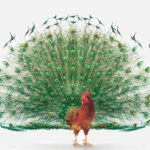By FRAZIER MOORE
AP Television Writer
BEVERLY HILLS, Calif. (AP) _ Tracee Ellis Ross delivers perhaps the funniest line you’ll hear on a sitcom this fall.
The character she plays on ABC’s comedy “black-ish” is, like Ross, an appealing mix of beauty, smarts and zaniness. She is totally plausible as a savvy mother of four and the loving wife of an up-and-coming ad exec (co-star Anthony Anderson), not to mention a busy anesthesiologist.
In this upscale African-American family, Dr. Rainbow Johnson also happens to be biracial. This occasionally spurs Andre, her hubby, who’s forever fretting about the family’s black cred, to question whether she is certifiably “black.”
He does this in the series’ premiere, to which, unfazed, Rainbow fires back, “If I’m not really black, then could someone please tell my hair and my ass!”
Reminded of that line during a recent interview, Ross cracks up.
“That’s what I love about our show,” she says. “With that line, my character sums it all up: `Are you STILL coming from the world that believes all black people are the same and all black people should think the same? C’mon, Dre!”’
With remarkable humor and finesse, “black-ish” (which debuts Sept. 24 at 9:30 p.m. EDT) addresses race, culture, socio-economics and other weighty matters.
But the issues it raises aren’t limited to “black-ish”-ness. Dre’s concerns, overwrought as they may be, are those of any proud member of an ethnic or racial group who worries that the very thing he may be yearning for _ assimilation into a larger community_ could come at the expense of his own group identity.
Dre’s concerns are those of any parent who wants things better for his kids than he had it, but worries that they’re influenced by changing times more than by the parents charged with raising them (that doggone generation gap!).
“Black-ish” asks, winningly, does a “colorless” society imply a betrayal of one’s own identity? Or, instead, its unleashing? (In the premiere, Dre’s 13-year-old son goes out not for basketball, as Dad expected, but for field hockey _ a “black-ish” sport! _ then asks for a bar mitzvah, not because he’s Jewish, but because he wants to throw a party.)
In a world arguably less and less pigeonholed, “black-ish” has fun with what defines “the black experience,” with what is and isn’t “appropriately” black.
It’s a question that Ross has dealt with in real life: She is the daughter of legendary vocalist Diana Ross and music business manager Robert Ellis Silberstein, who is white. She says early on she began to identify as being black (and is best known for her eight years as a star of “Girlfriends,” a comedy-drama with a black cast and perspective).
Why?
“Mostly because I couldn’t identify as a WHITE woman,” she replies, bursting into laughter. “But while I’m very comfortable identifying as a black woman, I’ve really had no interest in identifying as ANYthing. On my college application, I checked `Black’ AND `White.”’
She laughs again. “I haven’t had to answer any of these questions for so many years. Then, all of a sudden in the context of this series, because we say my character is a `mixed’ woman and apparently this is a `black show,’ it’s a conversation I’m having again.”
Not that she’s complaining: She loves the show’s message, which extends beyond laughs.
“I think what we’re really influenced by is class, culture and the tradition each of us comes from, as opposed to race,” she says. “We’re in a new dialogue around these things, and I think this show represents it.”
___
Online: www.abc.go.com
__
EDITOR’S NOTE _ Frazier Moore is a national television columnist for The Associated Press. He can be reached at fmoore(at)ap.org and at http://www.twitter.com/tvfrazier. Past stories are available at http://bigstory.ap.org/content/frazier-moore









